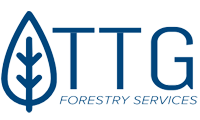| HOME > News > |
Tuesday, Aug 01, 2017 12:00am

It’s that time of year again when the tractors and bush hogs emerge from the sheds and appear to hungrily mow roads and lanes on the deer lease. Eager hunters are out in force on designated work weekends making ready the lease for the rapidly approaching deer season. Every year I see two opposite ends of extremism. Some mow too little and some mow too much. So here are some guidelines to remember while mowing on Forest Resource Consultants hunting leases.
First, we appreciate clubs that mow our roads. That free maintenance helps us keep our roads and helps the lessees keep their radiators free of seed and leaves. We really appreciate those clubs that not only mow the roads but also the road back slopes. By maintaining these back slopes through mowing, you prevent them from growing up in brush and volunteer pine seedlings. This action keeps are roads day-lighted from getting too narrow.
Second, there is a difference between planted and seeded pine. When we re-plant an area in pine we use genetically improved, nursery grown pine seedlings. However, pines are native to this country and mature pines left in streamside management zones, wet depressions, and other areas where we can’t log, throw native seeds. These seeds are equipped with a wing that allows them to drift long distances dancing along the wind. We do not protect these native pine seedlings. As a matter of fact they can cause us problems by overcrowding our pine plantations. We do not mind if you mow native pine seedlings that may occur in our roads and back slopes. Here is a rule to remember: If you see pine planted in straight rows they are not wild seeded pine! If you see pines growing up in a carpet they are not planted!
Finally, every year we in the Recreational Lease Group are required by management to send invoices to clubs that have mowed down our planted pines in order to create food plots and shooting lanes. Some of these invoices are for thousands of dollars. The very best way to protect your club and members is to ALWAYS ask permission first. Our foresters are willing to meet club members to designate stand, food plot and lane locations. This is one case where it is definitely not better to ask forgiveness than permission.


